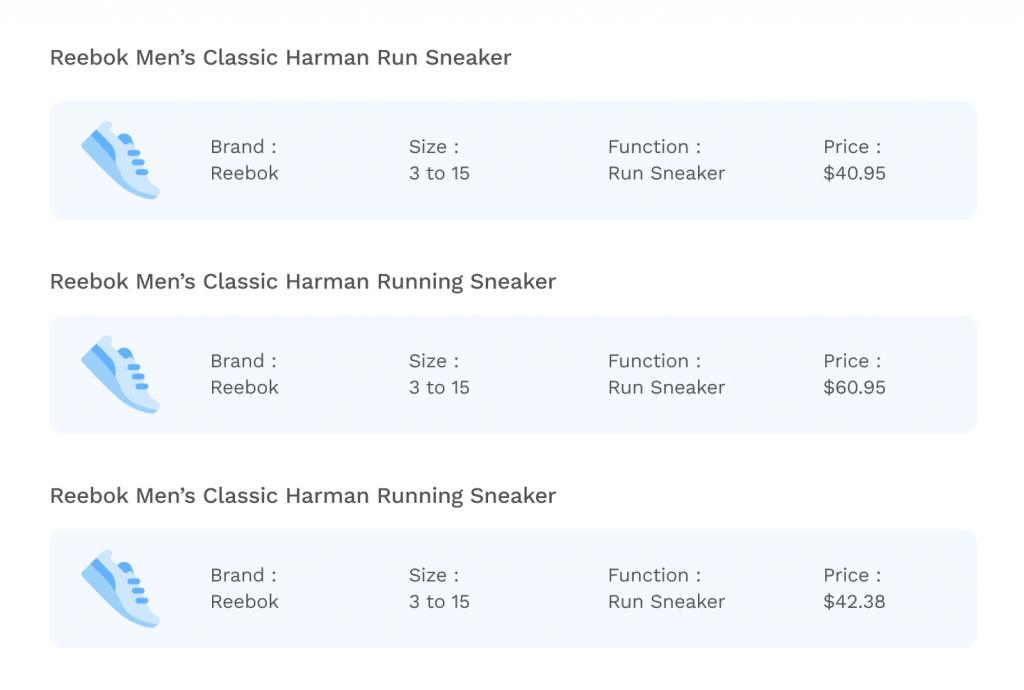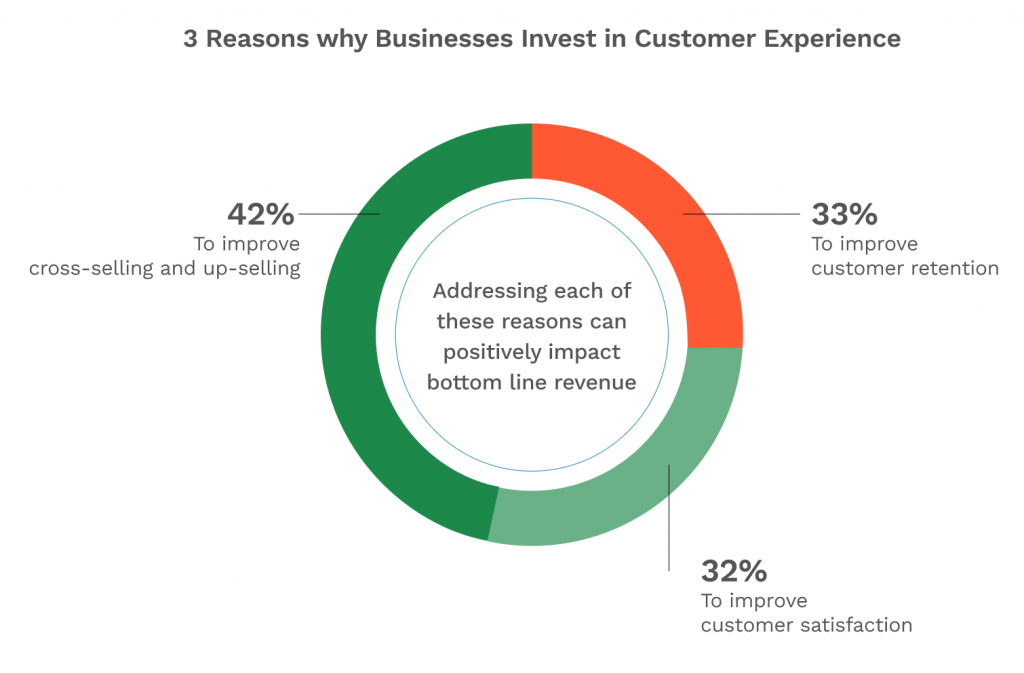How to Improve Your Product Matching Accuracy
How to Improve Your Product Matching Accuracy
The challenge of accurately matching products across many platforms is becoming increasingly complex. As businesses grapple with the intricacies of price comparison and product alignment without universal identifiers, the integration of artificial intelligence (AI) and machine learning (ML) offers a beacon of hope.
This blog post explores the transformative power of ML-driven product matching, its profound impact on retail strategies, and the nuances of different matching methods. We’ll unpack the essence, benefits, and challenges of this innovative approach, highlighting its pivotal role in shaping the future of competitive retailing.
Key Takeaways
- Machine learning revolutionizes retail by automating product matching, ensuring unparalleled speed, efficiency, and comprehensive analysis.
- ML-driven product matching continuously adapts and refines its processes, enhancing accuracy as more data is processed.
- Accurate product matching profoundly impacts retail strategies, enhancing consumer trust and providing strategic insights for retailers.
- Despite its advantages, ML-driven product matching faces challenges like dataset quality and industry-specific variations.
The Essence of ML-Driven Product Matching
In the dynamic world of retail, sifting through thousands of products to determine matches with competitors’ offerings presents itself as a challenge. ML-driven product matching emerges as a groundbreaking solution to this dilemma.

At the heart of this approach lies the utilization of machine learning to identify similar or identical products across diverse platforms. What makes this method revolutionary?
- Efficiency Through Automation. The reliance on manual methods and basic algorithms is reduced. Machine learning streamlines the matching process, offering both speed and efficiency. This is comparable to having a sophisticated system that identifies product matches with outstanding precision.
- Comprehensive Analysis. ML-driven product matching goes beyond basic identifiers like product names. It undertakes a thorough analysis, considering product features, images, and customer reviews. Whether it’s an electronic device or footwear, the system ensures unmatched accuracy by evaluating various aspects.
- Adaptive and Evolving. A hallmark of ML-driven product matching is its adaptability. As it processes more data and encounters diverse products, its precision improves. This adaptability highlights the progressive nature of machine learning.
Incorporating ML-driven product matching into retail strategies not only offers a competitive advantage, but also revolutionizes approaches to product assortment and pricing. In the contemporary competitive landscape, such an edge proves to be invaluable.
Types of Product Matching
Determining how products align with those of competitors is crucial. Various methods have been developed to tackle this challenge, each with its own strengths and limitations:
Manual Matching
Manual matching is a traditional method that involves specialists manually identifying and matching products.
- Pros: Offers a high accuracy rate as human judgment is involved.
- Cons: Time-consuming, not scalable, and requires significant human resources.
Barcode Matching
This is an automated process that searches for product URLs based on unique identifiers like UPC, GTIN, or ASIN.
- Pros: Fully automated and provides continuous matching.
- Cons: Quality of matches can sometimes fall short due to verification complexities. Limited data and search capacity can also hinder comprehensive product coverage.
ML-Driven Product Matching
ML-driven product matching utilizes machine learning algorithms to process vast amounts of data and product features for matching.
- Pros: Fast, efficient, and can handle large volumes of information. Continuously improves over time with more data.
- Cons: Requires high-quality datasets for ML model training and proper data cleansing.
By understanding the nuances of each type, retailers can make informed decisions on which method aligns best with their business needs, ensuring optimal product matching outcomes.
The Impact of Product Matching on Retail
Product matching, while seemingly a backend process, has profound implications on the retail landscape. It drives strategies, ensuring businesses remain agile, competitive, and consumer-centric in an ever-evolving market.

The influence of product matching permeates various facets of the industry, shaping strategies and determining outcomes.
Data Quality and Relevance
With the proliferation of products and their varying descriptions across platforms, maintaining accurate and up-to-date data becomes paramount.
The quality of matched products directly impacts the integrity of the data. Accurate matches ensure data relevance, while discrepancies can lead to miscalculations and misinformed strategies.
Pricing and Competitive Positioning
Product matching plays a pivotal role in competition-based pricing. By understanding how a product is priced across different platforms, retailers can make informed decisions on their own pricing strategies, ensuring they remain competitive and appealing to their target audience. Read more about Pricing AI and Competitor AI
Strategic Decision Making
With accurate product matching, retailers gain insights into areas like assortment optimization, product performance, and market trends. This data-driven approach empowers retailers to make strategic decisions, from inventory management to promotional campaigns.
Consumer Experience
Incorrect product matches can lead to negative consumer experiences. For instance, if a customer is shown an incorrect price comparison, it can lead to mistrust and dissatisfaction.
On the other hand, accurate product matching provides consumers with reliable information, enhancing their shopping experience and improving customer satisfaction and retention.

Optimization of Promotions
Product matching provides insights into how similar products are promoted across different platforms. Retailers can leverage this information to design effective promotional strategies, ensuring they resonate with their target audience and stand out in the market.
Deep Dive into ML Product Matching
Machine learning has revolutionized the realm of product matching, offering a blend of speed, accuracy, and adaptability. To truly appreciate its impact, it’s essential to dive deeper into its intricacies:
Multi-faceted Analysis
Unlike traditional methods, ML-driven product matching doesn’t solely rely on product names or basic descriptions. It integrates a holistic approach, analyzing product features, images, reviews, and other relevant data points. This comprehensive analysis ensures a higher degree of match accuracy.
Continuous Learning and Refinement
One of the standout features of ML-driven product matching is its ability to learn from its environment. As it processes more data and encounters a broader spectrum of products, the system refines its algorithms, enhancing its match accuracy over time.
Challenges and Considerations
While ML-driven product matching offers numerous advantages, it’s not without its challenges. Ensuring high-quality datasets for model training and proper data cleansing are essential.
Additionally, the system’s effectiveness can vary based on the industry, with some sectors, like electronics, offering more structured data compared to others.
Embrace AI-Powered Product Matching Today with Hypersonix
ML-driven product matching represents a paradigm shift in the retail industry. By harnessing the power of advanced algorithms and continuous learning, it promises a future where product matching is not just accurate, but also predictive, anticipating market trends and consumer preferences.
Hypersonix is a profit optimization platform that uses AI-powered tools to help DTC and eCommerce companies excel. Hypersonix’s ProfitGPT inventory management tools can help businesses leverage generative AI and inventory intelligence to provide actionable insights about inventory levels and pricing strategies.
To see how Hypersonix’s AI tools can help automate your pricing strategy, request a demo today!





